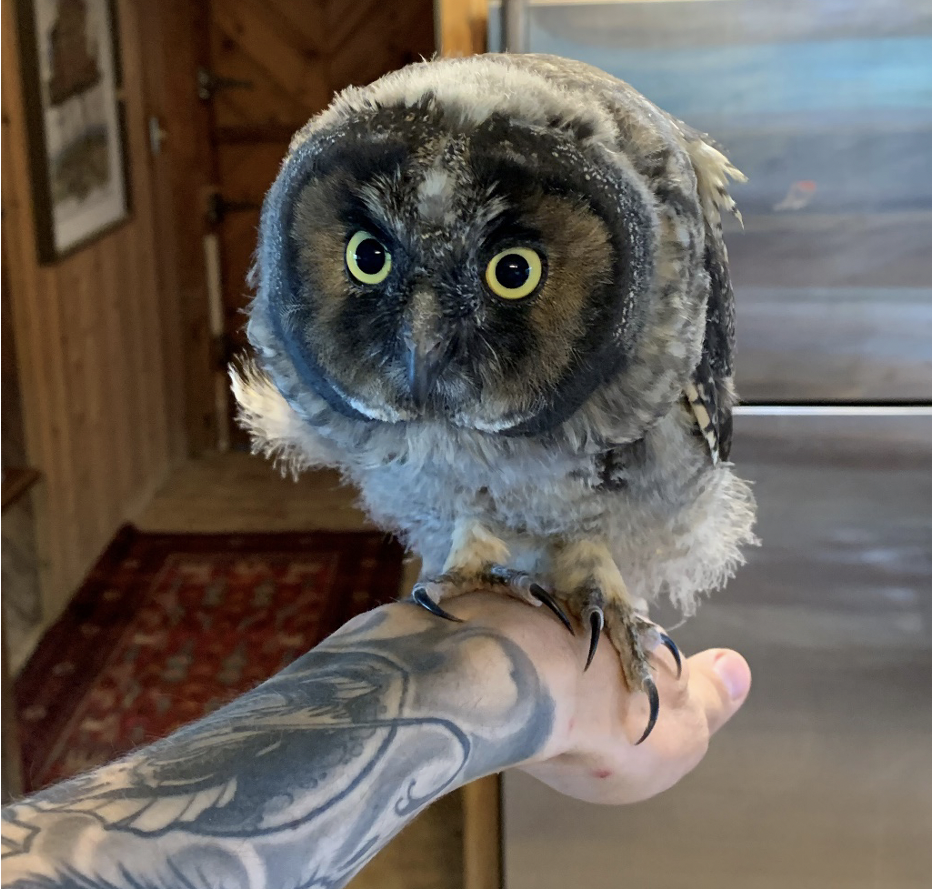Mountains to Climb: Overcoming Language-Based Challenges in the Rocky Mountains – by Nicolas Felber
Theory and Background Info

In my early childhood, it was my dream to one day become a zookeeper and spend my days tending to a wide variety of creatures that co-inhabit our decaying planet alongside us. Life had another plan for me, however, and I began a journey that led me down the path of English and German studies. When the time came that I had to embark on a stay abroad for my BA, however, I saw my chance to fulfill my childhood dream and began seeking out employment at wildlife-focused institutions in North America. I was able to secure a position as a wildlife technician at an ecological institute in Alberta, Canada. Through a convincing sales-pitch on my behalf that had admittedly embellished my previous voluntary work at local shelters, the directors of the institute had me penciled in to not only tend to their wildlife, but also to manage their pet retreat. Does this seem overwhelming to an untrained 22-year-old? Well, it was. This introduction is meant to paint the picture of a potentially perilous situation: I was unexperienced, pursuing a long-held dream, and far away from my natural surroundings hidden away in the Rocky Mountains. In the following post, I aim to shine light on a selection of linguistic difficulties that a migrant may experience in their interaction with a rural Canadian setting.
Before delving deeper into the challenges that I had to deal with, it is necessary to establish my own background pertaining to the English language. Through prolonged stays in New Orleans during my adolescence, my grasp on the language is quite strong and the label of L1-speaker is ascribed to me. This is important insofar as my accent is easily identifiable as Southern American and therefore elicits a variety of reactions when people acquaint themselves with me. Although most L1-speakers of non-Southern accents perceive it to be rather endearing and friendly, it nonetheless carries connotations that can lead to issues when dealing with individuals that reduce me to the ‘Southern drall’.

While most of my work was supposed to be in animal care, the directors left the management of the pet retreat in my control after two weeks of training. My interactions with customers are the first main challenge that I would like to address in this blog. Picture this scenario: you are a rancher living in the middle of nowhere in the Rockies and intend to board your dog at a local pet retreat to enjoy a nice vacation in Cabo. You show up and are greeted by a young man who you have never seen before and who speaks in a distinctly Southern American accent. No problem, right? Well, to an astonishing number of customers this was an affront. Menial work-related actions like booking in a dog were accompanied by extensive questioning of my reasons for being there and why I did not just stay in the U.S. Initially, I was stricken by the hostility shown towards me, and I even thought about switching back to a Swiss accent, as my French co-worker did not face any problems. Quite the contrary: she was treated well, and patrons inquired about France and complimented her English. After experimenting with the Swiss accent for a bit and subsequently being labelled as a ‘German’, I decided to bide my time with my New Orleans English. Thankfully, returning customers were eventually swayed by my character and I started to grow on them. Dealing with around 10-30 patrons a day, I was able to amass quite the collection of opinions that rural Albertans hold of Southerners, and I fret to admit that there seems to be a distinct dislike for them in the area. If I had been able to emulate a Canadian accent back then, it would have been interesting to see, whether this would have made an impact. One may argue that it could have been my character and not my accent that caused these problems, but the customers’ perpetual hostility in questioning me about it in combination with my success at workplaces outside of Alberta lead me to believe it truly was a linguistic issue.
Accent-based discrimination was not the only obstacle I had to deal with, however. One of the directors of the institute, a then 72-year-old Nova-Scotian, presented me with an array of challenges that I intended to overcome. While he was surprisingly appreciative of my accent due to having conducted research in the Louisiana swamps during his studies, he and I faced other conflicts. He employed a rather authoritative approach to handling subordinates, which did not mesh well with my expectations of respect and courtesy at the workplace. A favorite strategy of his to assert his dominance was his continued referral to me as ‘boy’, which I did not appreciate in the slightest. Having been encultured in a Southern background, ‘boy’ is both a belittling way to address a grown man and carries a heavily racist connotation due to its usage in slavery. Despite repeated efforts on my behalf to alleviate this issue, he persisted. An interesting observation was that he used ‘boy’ exclusively during work hours, but switched to ‘my boy’ during private encounters. This had a profound psychological effect on me, as I was dealing with a lot of pressure at work, and any sign of affection was very welcome. The addition of the possessive adjective ‘my’ insinuated an affectionate intention, which, over time, made me accept the regular ‘boy’ during work hours. To this day, I do not know, whether this was done on purpose, but it was most definitely effective in keeping me in check.
While there are plenty of other examples of how my employment in the Rockies was fraught with linguistic problems, the two aforementioned challenges aptly serve to illustrate how the mere presence of a distinct accent can affect your life at the workplace.
by Nicolas Felber
